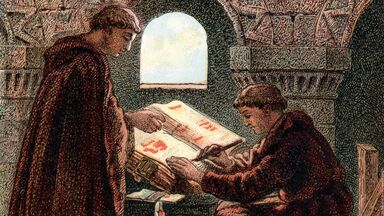
The conversion of the Anglo-Saxons to Christianity, which began in the late sixth century and was largely complete by the late seventh century, was an event of huge cultural importance. beforehand) or during or after the conversion to Christianity (i.e. Certainly very few words were borrowed into English from Celtic (it is uncertain whether there may have been more influence in some areas of grammar and pronunciation), and practically all of the Latin borrowings found in Old English could be explained as having been borrowed either on the continent (i.e. Precisely what fate befell the majority of the (Romano-)British population in these areas is a matter of much debate. (On the history of the name, see England n.) However, it is uncertain how much Latin remained in use in the post-Roman period.ĭuring the course of the next several hundred years, gradually more and more of the territory in the area, later to be known as England, came under Anglo-Saxon control. In Roman Britain, Latin had been in extensive use as the language of government and the military and probably also in other functions, especially in urban areas and among the upper echelons of society. and adj.īefore the coming of the Anglo-Saxons, the majority of the population of Britain spoke Celtic languages. (and adv.) and n., and also Middle English n. On the history of the terms see Old English n. ‘Anglo-Saxon’ was one of a number of alternative names formerly used for this period in the language’s history. It is thus first and foremost the language of the people normally referred to by historians as the Anglo-Saxons. It refers to the language as it was used in the long period of time from the coming of Germanic invaders and settlers to Britain-in the period following the collapse of Roman Britain in the early fifth century-up to the Norman Conquest of 1066, and beyond into the first century of Norman rule in England. Old English is the name given to the earliest recorded stage of the English language, up to approximately 1150AD (when the Middle English period is generally taken to have begun). Derivational relationships and sound changes.Some distinguishing features of Old English.

The OE translator even finds it in its entirety and suggests “fire-terror”.

It also works really well for translations from ModE into OE.Īs for the compound you’re looking for, I would suggest something like a trembling of fire or heat. The nice thing about the site is that you don’t need much grammatical knowledge – just type in the word form you have and it’ll probably spit out translations and all of its related forms. I used it for a term paper this semester and it didn’t disappoint me. He said it seems to work very reliably in almost all of the cases. I’m not entirely sure how recognised it is, but my OE teacher at uni recommended it to me. If you want to bypass that problem, you should have a look at the Old English Translator ( ).


It has translations and examples for almost every word you’ll ever need, however you will have to have a basic understanding of OE grammar, since you will often only find what you’re looking for when you type in infinitives or word-stems. In terms of online dictionaries, the Bosworth-Toller Anglo-Saxon Dictionary (bosworth.ff.) is my top choice most of the time.


 0 kommentar(er)
0 kommentar(er)
